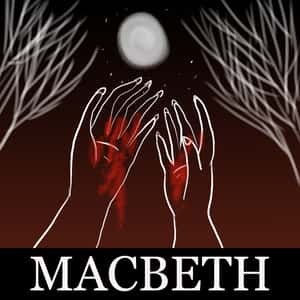Duncan
Extended Character Analysis
Duncan is the King of Scotland. He is characterized as a fair and wise king who is generous with his kinsmen and just with his people. Duncan awards Macbeth the title of Thane of Cawdor as a reward for his bravery in the battle against the King of Norway. However, despite the king’s virtues, the Macbeths murder Duncan in his sleep, sending Scotland into a spiral of chaos and disorder.
Duncan is portrayed as a fatherly figure, and Lady Macbeth remarks that he looked too much like her father for her to go through with killing him herself. When addressing Macbeth and Banquo after the battle against the traitorous Thane of Cawdor, he employs plant metaphors that symbolize his desire to cultivate loyal and worthy subjects. This diction serves to position Duncan as a gentle and attentive figure who genuinely cares for his thanes and subjects.
Duncan’s emotional speaking style and apparent compassion contrast with Lady Macbeth’s concept of masculinity. Both Duncan and Malcolm, the rightful kings in the play, display moments of genuine compassion and warmth, a contrast to Lady Macbeth’s insistence that cruelty and cunning are the central masculine traits. Lady Macbeth’s attempt to undermine what it means to be an honorable man clashes with the reality that the good rulers display all of the traits she dismisses as weak and “unmanly.”
However, for all of Duncan’s virtues, his primary flaw is his poor judgement of character. Macbeth wins the title of Thane of Cawdor after defeating the previous Thane of Cawdor in battle. The very defection of the previous Thane of Cawdor shows that Duncan has been betrayed in the past and foreshadows Macbeth’s subsequent term in that role. However, Duncan is unable to discern the threat that Macbeth represents, instead describing Inverness as having a “pleasant seat.” Duncan is trusting, believing that his own goodness and generosity is enough to satisfy the ambitions of his attendant lords.
In a setting where kings are thought to be appointed by divine rule, subject to none other than their god, regicide is considered sacrilegious. Furthermore, Duncan is described in divine language, said to have “silver skin” and “golden blood,” reinforcing his near-divinity. Due to Macbeth’s admission that Duncan has been a good king, Duncan’s death lacks any sense of righteousness. The religious contexts of kingship combine with the unjustified murder to make Macbeth’s regicide feel even more unnatural.
See eNotes Ad-Free
Start your 48-hour free trial to get access to more than 30,000 additional guides and more than 350,000 Homework Help questions answered by our experts.
Already a member? Log in here.
